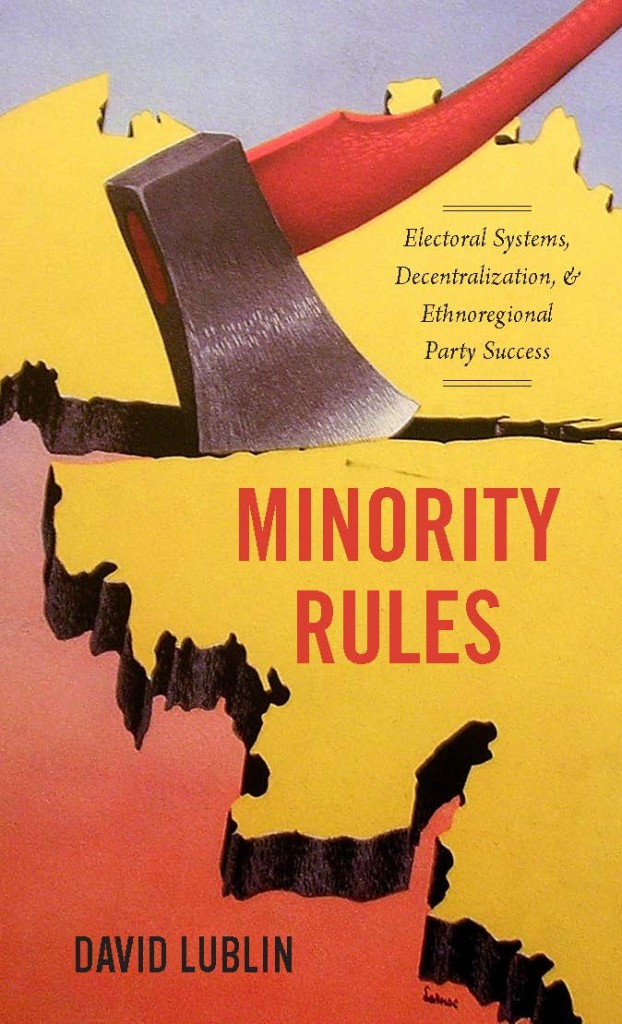I am pleased to announce the publication of my new book, Minority Rules: Electoral Systems, Decentralization and Ethnoregional Party Systems by Oxford University Press.
Everyone loves to write about failure. There are shelves of books about ethnic conflicts in Bosnia, Israel, and Rwanda. But wouldn’t it be easier to try to keep Humpty Dumpty up on that darn wall rather than having to put him back together again? Minority Rules eschews the usual focus on failure to study the representation of minorities in free democracies in roughly 80 countries around the globe from the tiniest nations in Polynesia to India and the U.S.
Contrary to theories that emphasize sources of minority discontent–such as disputes over natural resource wealth–Minority Rules demonstrates that electoral rules play a dominant role in explaining not just why ethnic and regional parties perform poorly or well but why one potential ethnic cleavage, like language, emerges instead of another, like religion. Unlike past studies, Minority Rules finds that decentralization does not augment the success of ethnoregional parties.
This matters because the emergence of ethnic and regional parties along with the failure to incorporate them meaningfully into political systems has long been associated with ethnic conflict. As a result, the findings, which derive from a rich empirical foundation, have important implications not only for reaching successful settlements to such conflicts but also for preventing violent majority-minority conflicts from breaking out in the first place.
David Lublin is Professor of Government in the School of Public Affairs at American University. He is the author of The Paradox of Representation and The Republican South.

